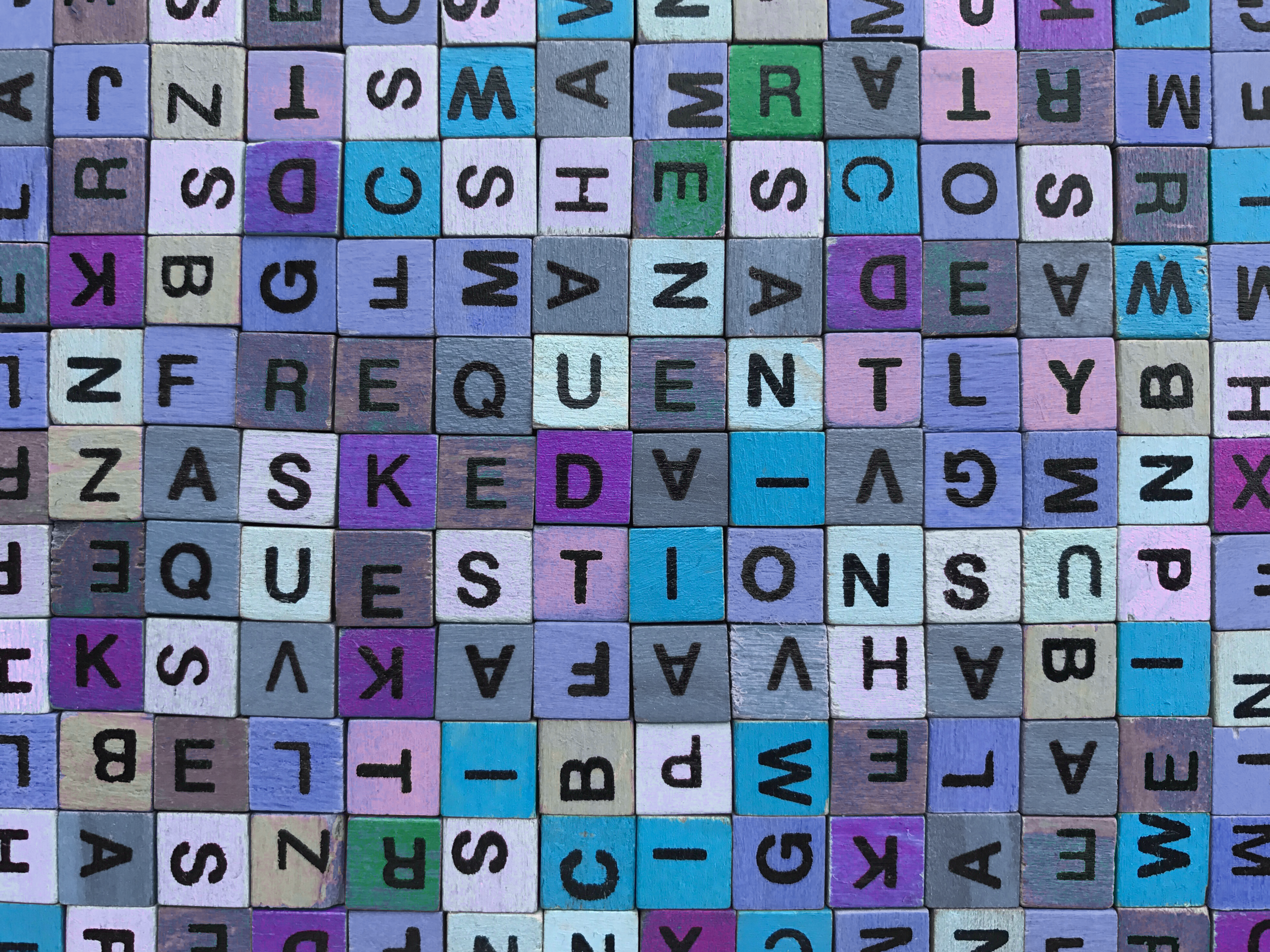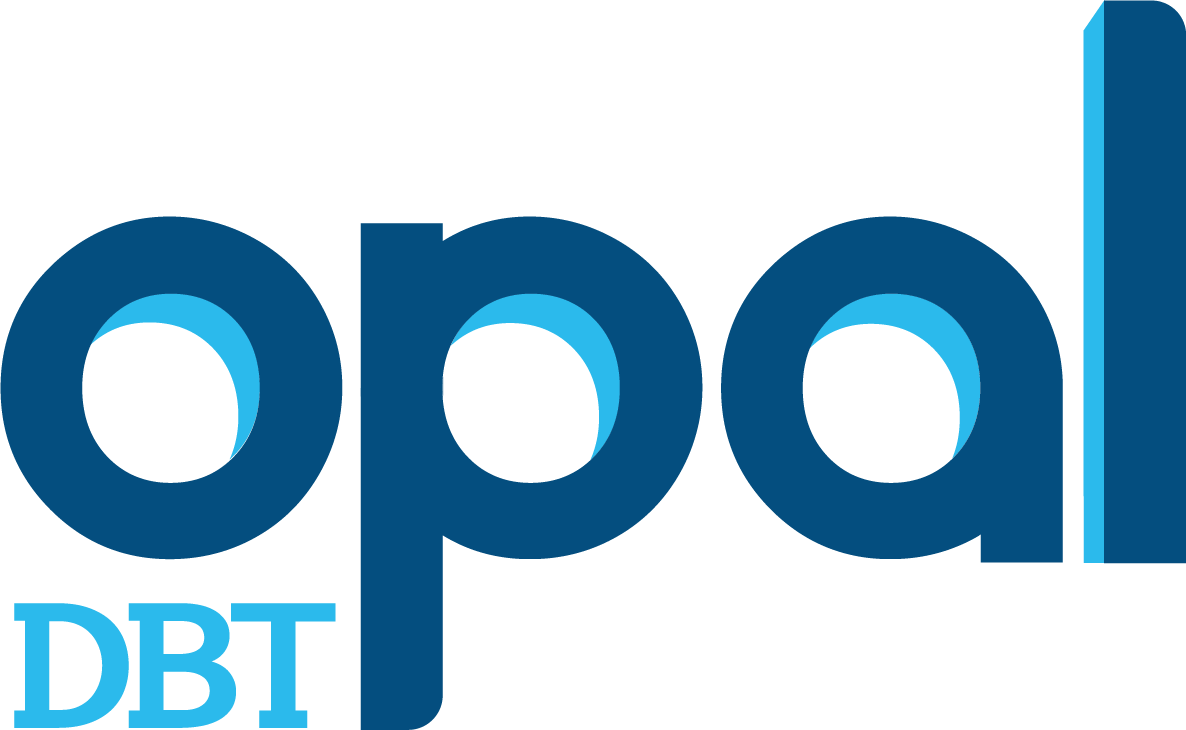
Frequently Asked Questions
It's normal to have questions and concerns when trying to find a new treatment approach or provider- so normal, in fact, that there are many questions we hear regularly! See below for answers to common questions that may arise after looking over our website.
WHAT IS DIALECTICAL BEHAVIOR THERAPY (DBT)?
DBT is an evidence-based treatment that combines cognitive behavioral interventions with mindfulness and acceptance-based approaches. It was created by Marsha Linehan, PhD, and helps people who have difficulty controlling their emotions and behaviors.
DBT aims to identify and replace problem behaviors by teaching skillful and more effective responses.
Comprehensive DBT is a treatment approach that incorporates multiple modalities, including individual therapy, group skills training, and support between sessions in the form of on-call phone coaching. Therapists who provide comprehensive DBT engage in weekly consultation meetings to support each other and ensure fidelity to the treatment model.
DBT helps people create a more balanced and fulfilling life.
WHAT DOES “DIALECTICAL” MEAN?
Two opposites can be true at the same time, and when considered together, can create a new truth and a new way of viewing the situation.
There is always more than one way to think about a situation.
WHO CAN BENEFIT FROM DBT?
DBT skills help support individuals with a variety of clinical and non-clinical concerns, by focusing on increasing effectiveness and resilience across situations. Almost everyone could benefit from learning these skills!
DBT has been demonstrated to improve the functioning of many teens and adults who struggle with cognitive, emotional, and behavioral dysregulation- difficulty managing thoughts, feelings, and urges- even those who experience multiple concerns at once.
Some of the challenges DBT skills address include:
Poor Self-Awareness (e.g., identity, values, etc.)
Impulsivity (e.g., self-injurious behaviors, substance abuse, suicidal gestures, emotional eating etc.)
Extreme Emotionality (e.g., depression, intense anger, anxiety, hopelessness, suicidal ideation)
Chaotic Relationships with peers and family members
Rigid or Unrealistic Thinking
Families of multi-problem adolescents often experience conflict, and can benefit from DBT.
WHY MULTI-FAMILY DBT?
DBT therapists understand that lives of emotionally distressed adolescents and their families are painful as they are currently being lived.
Several aims of Comprehensive DBT include enhancing capabilities, improving motivation, generalizing skill usage to the natural environment (i.e., home, school, etc.), and structuring those environments to support effective behaviors. As adolescents primarily function within their home environment, skills training in DBT for adolescents is Multi-Family, teaching teens, as well as their parents or caregivers.
Comprehensive Adolescent DBT includes Individual DBT sessions for teens, Multi-Family DBT Skills Training Group for teens and a parent or caregiver, and on-call Phone Coaching for the teens to support and generalize skill usage. Therapists who provide Comprehensive Adolescent DBT also engage in weekly consultation meetings to support each other and ensure fidelity to the treatment model.
WHY WOULD MY THERAPIST RECOMMEND DBT SKILLS TRAINING GROUP?
Therapists who do not specialize in DBT may see how the skills could benefit their clients. These skills are helpful for most people! If you have been referred by your therapist to participate in DBT Skills Training Group, the recommendation is that you learn new strategies to manage emotions while continuing to do individual work with your therapist.
MY CHILD OR I WOULD LIKE TO JOIN THE DBT SKILLS TRAINING GROUP, BUT HAVE NO CURRENT THERAPIST. WHAT CAN I DO?
All clients applying for OPAL DBT Skills Group must be meeting regularly with either an OPAL therapist or an individual therapist of their choosing (at least twice per month).
WHAT IS COMPREHENSIVE DBT?
Comprehensive DBT includes DBT Skills Group participation and individual DBT therapy. When in comprehensive DBT, the client has access to skills phone coaching between sessions with their individual DBT therapist. Clients who are in Group Only DBT at OPAL do not receive phone coaching from the group facilitators.
HOW OLD MUST MY CHILD OR I BE TO PARTICIPATE IN TREATMENT AT OPAL?
To be eligible for our Multi-Family DBT Skills Training group and/or Comprehensive DBT, clients must be at least 13 years old and in 8th grade. Clients in our young adult group are ages 17-24, and have completed high school or equivalent.
WHAT IS DBT SKILLS TRAINING GROUP LIKE AT OPAL?
At OPAL DBT, both our Multi-Family and Young Adult Skills Training Groups focus on one thing: helping participants learn new strategies! For that reason, our groups include classroom-style didactics, home work assignment and review, and lots of opportunities for practice. Group time does not focus on processing events in the lives of participants, although group members often feel supported and validated nonetheless. Personal information is shared by participants only in support of new skill acquisition and generalization, and facilitators help ensure a safe environment conducive to learning.
WHAT IS THE TIME COMMITMENT TO DBT SKILLS TRAINING AT OPAL?
Multi-Family Skills Training Group for adolescents and parent/guardian meets each week for 2 hours. It is a 24-week commitment and current groups run on Monday, Tuesday or Thursday evenings from 7-9pm. Young Adult Skills Training Group meets for 90 minutes weekly. This group is a 24-week commitment and currently meets on Tuesday from 12-1:30pm or Wednesday from 1-2:30pm. The Young Adult Advanced Group meets on Wednesday from 4-5:30pm.
WHAT IS THE AGENDA OF A TYPICAL DBT SKILLS TRAINING SESSION AT OPAL?
Typical group starts with a mindfulness exercise, followed by homework review (Multi-Family Skills Group often separates at this time, with adults and young people in different rooms). After a short break, the entire group meets together again for the new DBT skills lesson.
WHAT IS AN ASSESSMENT AT OPAL DBT? WHY DO I NEED ONE?
An assessment is a one time 90-minute session that enables OPAL DBT to determine goodness of fit and to provide initial orientation to OPAL DBT programming. After the assessment, OPAL DBT consult team meets and makes clinical recommendations to the family/individual.
WHAT IS THE FINANCIAL COMMITMENT TO DBT AT OPAL?
OPAL DBT is a fee-for-service practice, with payment expected at the time of service. We do not accept commercial insurance, Medicare, or other forms of agency assistance (e.g., Victim’s Compensation Assistance). We will provide receipts that can be independently submitted by clients for reimbursement, if applicable. Fees vary depending on service(s) provided.
CAN TWO PARENTS OR CAREGIVERS COME TO MULTIFAMILY DBT GROUP TOGETHER? DOES ONE OF US HAVE TO COMMIT TO ALL 24 WEEKS?
To achieve balance in sessions and allow our young people to feel supported rather than outnumbered, we only allow one parent or caregiver to attend at a time. Our Multi-Family DBT Skills Training groups also benefit from cohesion and continuity across sessions. For that reason, one parent is chosen to be the primary skills participant for the 24-week commitment. Should a family choose to do two rounds of DBT, it could be beneficial for the family system if another parent or caregiver chose to participate in the next 24 weeks.
I AM A PARENT OR CAREGIVER OF A DIFFICULT TEEN. I DO NOT NEED DBT SKILLS, BUT MY CHILD DOES. WHY DO I HAVE TO ATTEND MULTI-FAMILY ADOLESCENT GROUP, TOO?
It is critical that our struggling young people learn new skills to manage their emotions and behaviors across environments. Parents can be an integral part of their children's success when they also learn and model DBT skills.
I AM A PARENT/CAREGIVER AND MY CHILD WILL NOT PARTICIPATE IN DBT, WHAT CAN I DO?
Learn the skills yourself! Research suggests that when parents/caregivers learn DBT skills, we are better equipped to manage high conflict situations, model more effective communication skills, and improve the overall quality of relationships. Our Dialectical Parenting Skills group is a 6 week program open to ANY parent - your child does NOT have to be in treatment at all.
I DON'T WANT TO PARTICIPATE IN GROUP. IS IT A REQUIREMENT OF DBT?
Most clients who are referred for DBT (Comprehensive or Skills Group Only) are working hard to succeed in their lives, and yet are struggling in some way(s). For these individuals, learning new strategies to manage emotions, thoughts, and urges is a key component to successful treatment. DBT Skills Training, typically conducted in a group, is the most effective way to teach and reinforce more effective behaviors.
For more information on DBT, visit WWW.BEHAVIORALTECH.ORG
Adapted From: DBT Skills Manual for Adolescents, by Jill H. Rathus and Alec L. Miller. Copyright 2015 by The Guilford Press.
